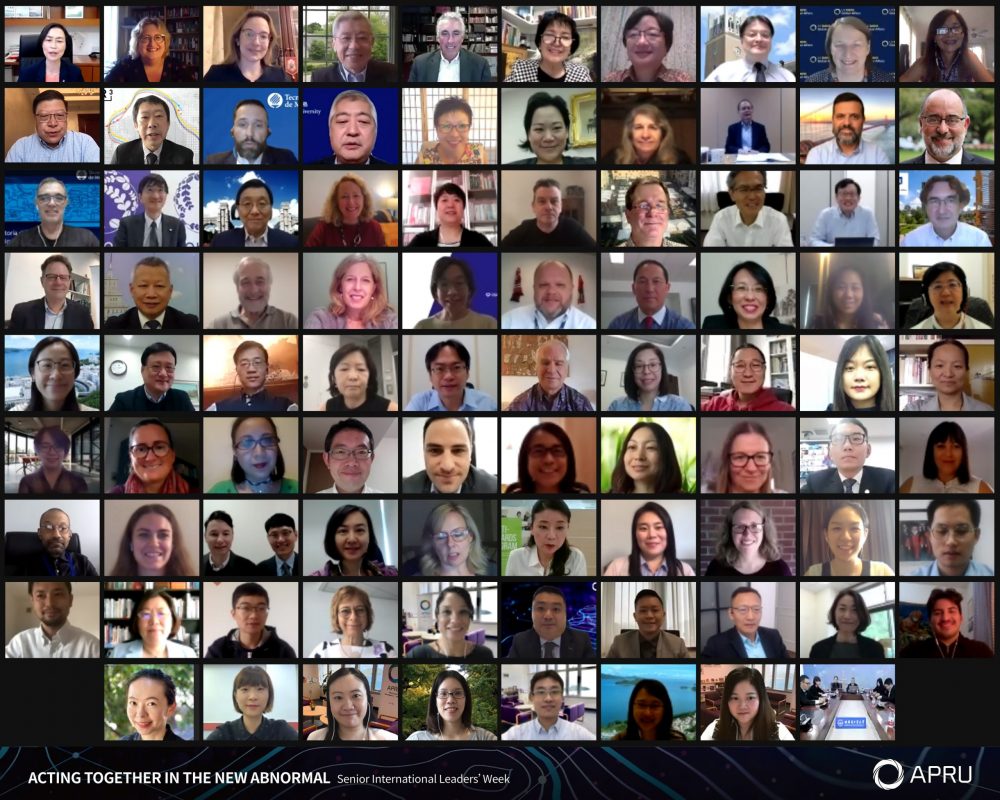APRU successfully held its Senior International Leaders’ Week 2020 on October 6 to 9 which attracted over 450 participants around the world.
Originally scheduled for hosting by the Far Eastern Federal University (FEFU) in Vladivostok, Russia, this year’s annual meeting was held virtually and was extended to four days as a response to the global health pandemic.
The main Senior International Leaders’ Meeting held on October 7 was the platform for senior leaders to discuss the issues facing their societies and the Asia-Pacific region, and to review and plan our international strategy as a network. Attended by nearly 120 APRU delegates, this year’s meeting was chaired by Kathy Belov, Pro Vice-Chancellor (Global Engagement) at The University of Sydney and International Policy Advisory Committee (IPAC) Co-Chair.
In his opening address of the meeting Secretary General Christopher Tremewan noted that many presidents of APRU member universities have recently been emphasizing their support for the network because of the obviously pressing need to communicate, share ideas and cooperate in the face of the crisis.
“Even before the pandemic we had been having a sense that the world was moving abnormal in many ways,” Tremewan said. “Indeed, COVID-19 makes it even more important for us to act as a community amidst all these challenges and stresses,” he added.
The panel discussion “Acting Together in the New Abnormal” was moderated by Victoria Panova, FEFU’s Vice-President for International Affairs. During the discussion, Kai-Ming Cheng, Emeritus Professor at The University of Hong Kong, projected that there will be no going back to the old normal for universities, with the new normal entailing reduced traditional learning and expanded self-directed learning with online means. Cheng explained that this shift will most likely be driven by declining public appropriations and philanthropic donations, with falling enrolment numbers reducing universities’ tuition income in the meantime. Nevertheless, Cheng went on to identify political factors as the overarching dilemma, as reflected by globalization, collaboration, open doors and market competition having given way to protectionism, hostility, domestic development and state intervention respectively.
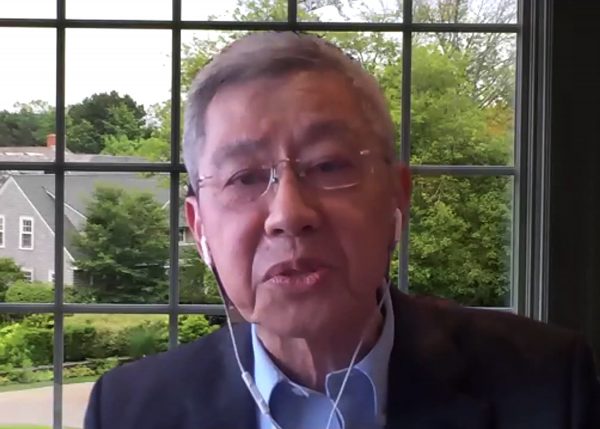
“All this seems irrational, but it is happening due to government behaviors,” Cheng said.
“Higher education should advance despite these government behaviours, and I am confident that this is possible, given that the people are still friends, collaborators and partners,” he added.
John Aubrey Douglass, Senior Research Fellow, Public Policy and Higher Education at UC Berkeley, giving a scan of variables in the post-COVID era. Cynthia Rose Bautista, the University of the Philippines’ Vice-President for Academic Affairs, outlined the new developments in teaching and research catalysed by the pandemic. Two discussants, Masahiko Gemma, Waseda University’s Vice President for International Affairs, shared the Mini-Max (to minimize the maximum regret) principle of crisis management, and Lisa Xu, Vice President for Education and International Affairs at Shanghai Jiao Tong University, elaborated her experience of new models of strategic partnership and collaboration in teaching.
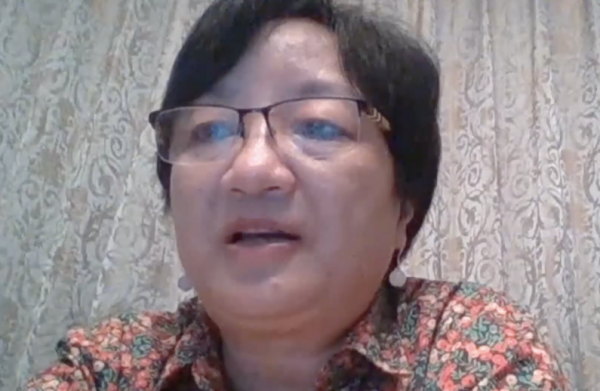
In the past two years the addition of nine new members (Monash University and The University of Queensland from Australia; Harbin Institute of Technology, Shanghai Jiao Tong University and Xi’an Jiaotong University from China; Universidad San Francisco de Quito from Ecuador; and Universidad de los Andes from Colombia; and University of California, Riverside and University of California, Santa Cruz from the US) brings the number of APRU members to 56. In the two orientation sessions held on October 6, each new member was invited to give a short presentation about their universities and to share with the APRU Secretariat and other members their expectation of joining the network and potential areas of collaboration and engagement were also explored. Veteran senior leaders from the region were also invited to share their experience with new members on deriving value from the network.
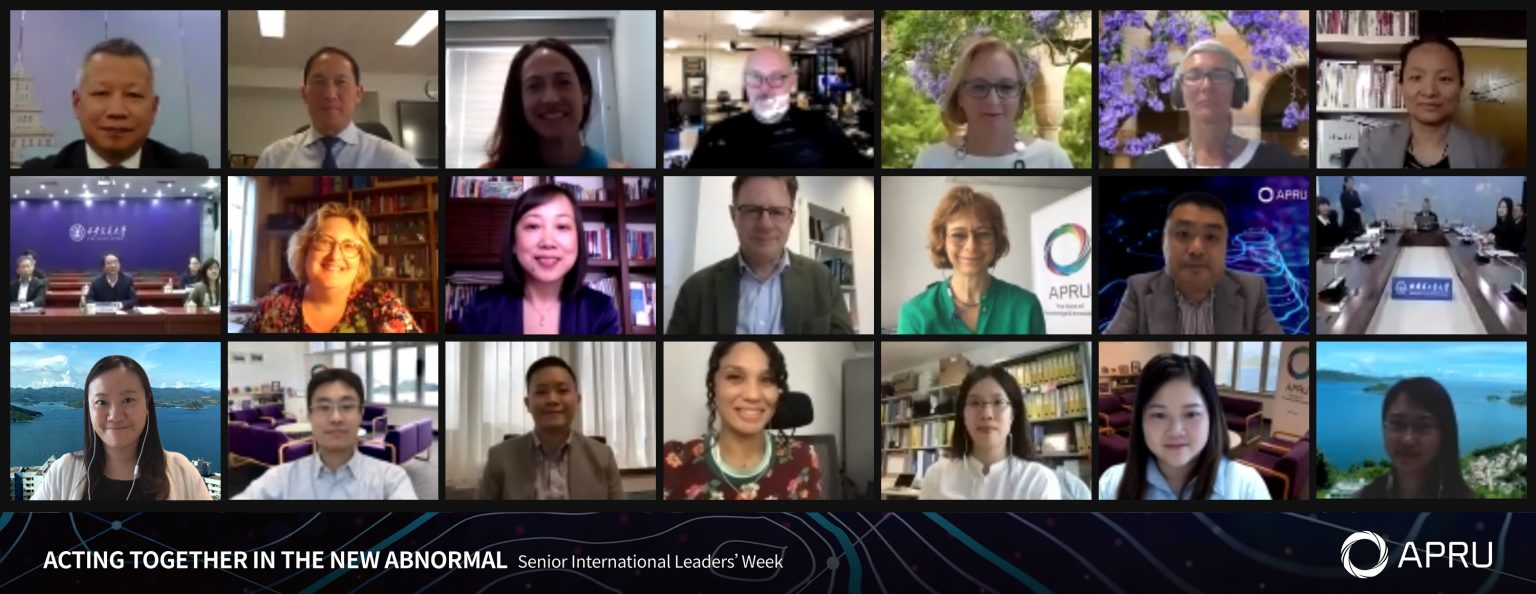
The webinar “STEM Education across the APRU Network: Shaping Learning Experiences for Students” was moderated by Elly Vandegrift of the University of Oregon and was participated by STEM faculty coming from various disciplines in different geographic regions. Panelists discussed how innovative teaching practices can be culturally responsive and adapted to the wide variety of learning environments, and how inclusive teaching practices can continue to support global education as a central component of student learning.
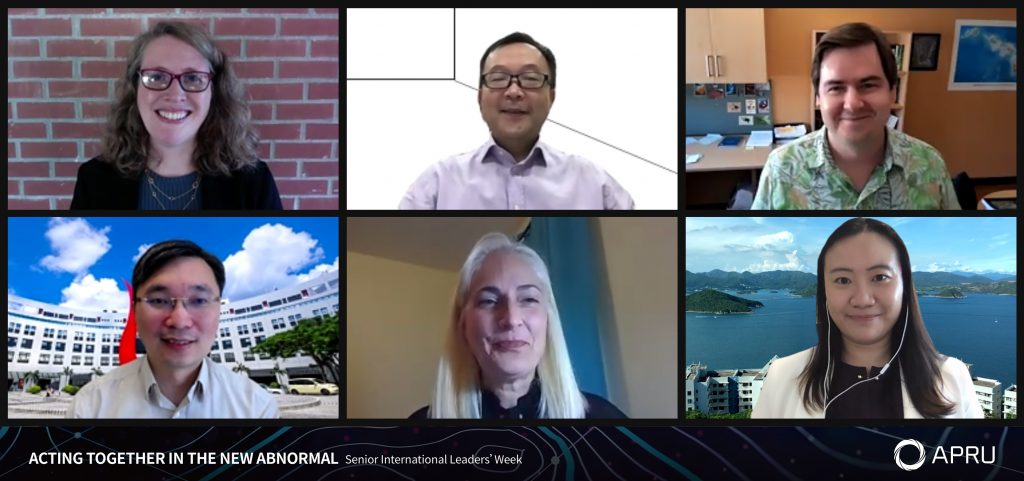
In collaboration with the Ocean Nexus Center of the University of Washington, the APRU Pacific Ocean Program – Engaging Conversation on Ocean and Social Equity was held on October 7 where panelists unpacked ocean issues and their societal implications which are often left out due to the non-residential characteristics of oceans.
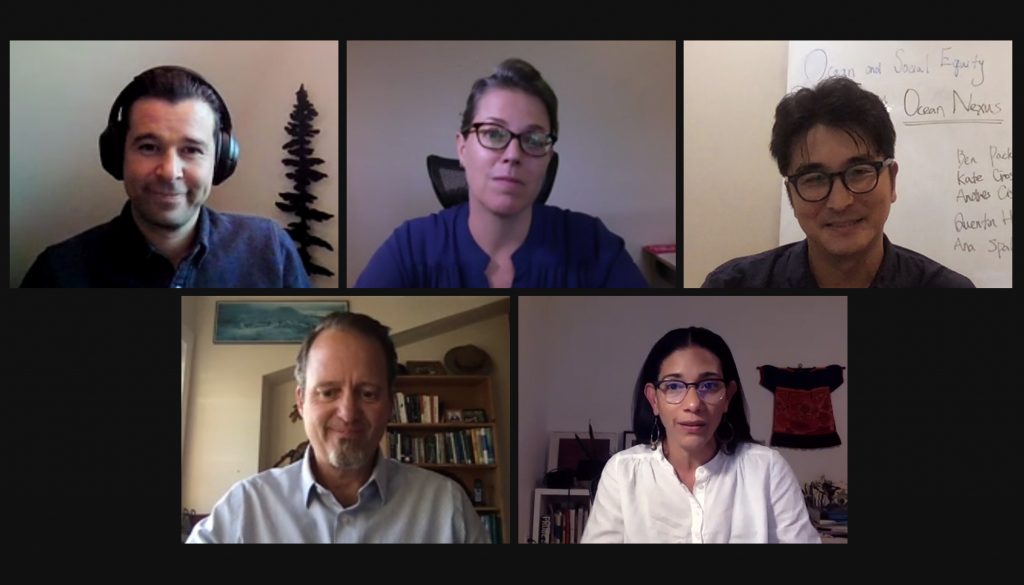
In the session Global Health Program’s online courses APRU students and faculty had the chance to hear from former students and current faculty participants on their feedback on the distance education courses offered by the program, and observed in real time the student-led breakout room discussions.
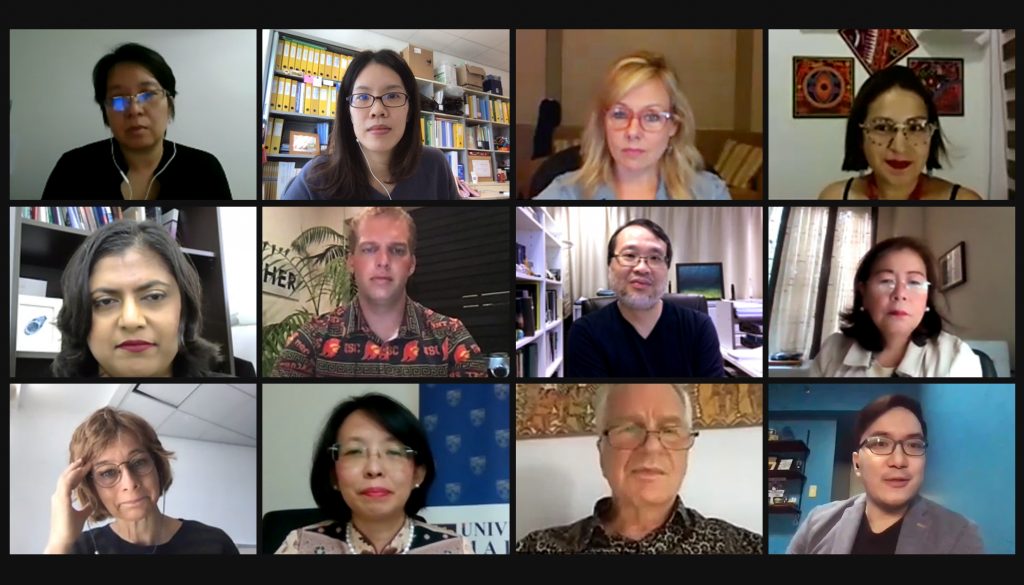
The eventful week was concluded by the Indigenous Knowledges Network Working Group Meeting, which was attended by nearly 30 subject experts and colleagues. Participants were briefed on the current state of indigenous studies in individual institutions and regions and shared their views on developing an Indigenous Knowledges Network among APRU members.
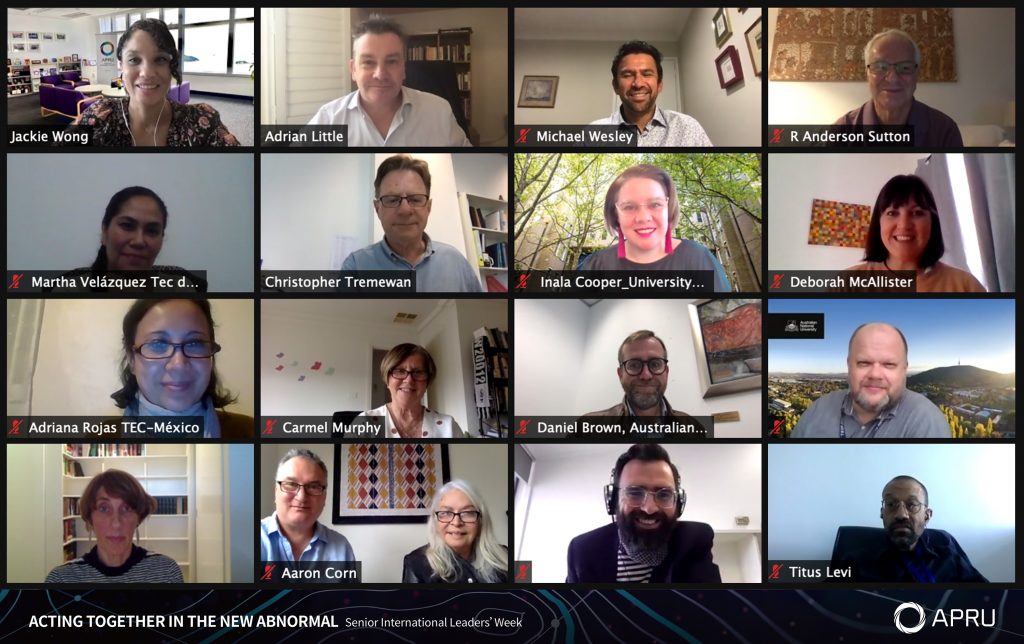
- Click here to view the the Senior International Leaders’ Week photo album.

